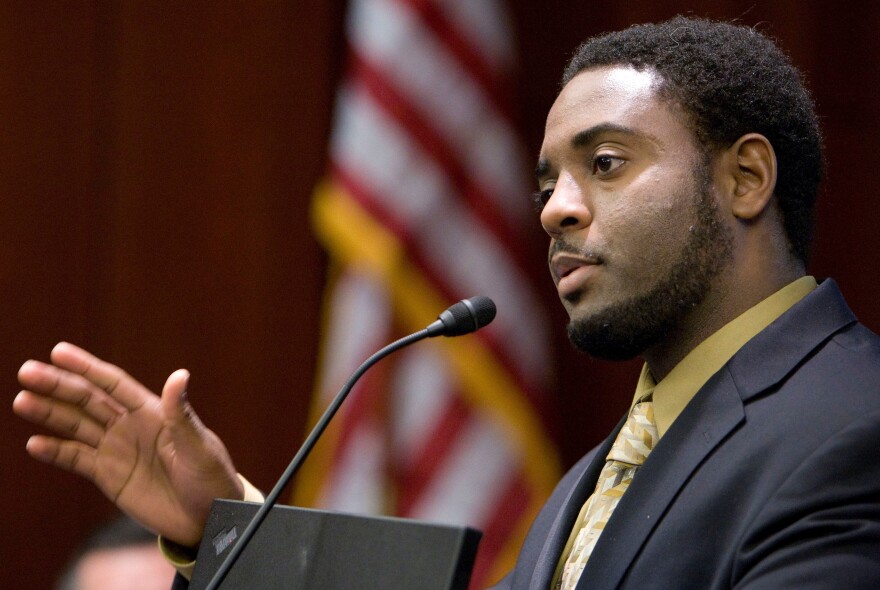The coronavirus crisis has forced the cancellations and postponements of countless events. But, thankfully, the global pandemic can't take National Poetry Month away from us.
Every April, All Things Considered calls on you, our audience, to help celebrate the art of the verse.
Here's how to participate: Tweet your original poems to @npratc in 140 characters or less with the hashtag #NPRPoetry. Every week through the end of April, we'll feature some of our favorites on-air and online.
We're kicking off the celebration early this year: Since people are spending more time self-isolating at home, what better way to pass the time than creating poetry?
"Hopefully, this'll be over soon, but I like the fact that it gives us some more time to think about poems while we've got to go through it," Reginald Dwayne Betts said in an interview with NPR.
In fact, the poet produced his latest collections of poems, Felon, as the result of a more sobering period of isolation; Betts, 40, spent more than eight years in prison, from age 16 to 24 for committing a carjacking.
Since incarceration, the poet, memoirist, and teacher has been pretty busy thinking about other things. Betts became a lawyer, he's currently working toward his PhD at Yale, and had published three books before Felon.
But he returns to his time in prison in his latest work. Betts says he wanted to refamiliarize himself with his own experience to make sure he can help others, including his two young sons, ages 8 and 12, learn from his "horrible mistake."
"It's sort of like returning to it as a way to kind of center myself," he says, "but also recognize that in returning to it, I think about the ways to return to all of those folks who are still locked up."
"I don't want my success to encourage me to forget them, to forget what it meant to make such a horrible mistake and almost ruin my own life to such a degree that I don't tell the story to prevent somebody else from going down that path — or just make sure other people know what's going on."
In 2016,Betts wrote an essay about the time he spent in solitary confinement when he was 16, in which he described its horrors, feeling "alone in the hole, nearly broken."
What helped him persevere during the large stretches of confinement, he says, was, in part, his use of the time to contemplate. He first started writing poetry while he was in prison.
"I found that I was able to do something that I hadn't been able to do when I was young, and that was to kind of engage with the world," he says.
It's a mindset he's continued to inhabit today.
"I mean, me and my kid were taking a walk, and I heard the sound of a squirrel's claws as it climbed a tree. And I realized that I had just never heard that before because I'd never been outside in nature without the hum of a car," he recalls. "I just never had a reason to notice this other thing that was just a part of the beauty of life, sort of moving and percolating, right?"
Betts thinks people who are self-isolating right now can find some value in that.
"As stressful as this time is, it gives us the opportunity to reflect and maybe to imagine what it is for everybody who has to endure this on a more constant basis," he says.
To help our Twitter poets get started with some inspiration, Betts points back to the trusty tool of observation.
"Spend the 100 or so characters just writing about a room that you're in," he says. "You want to get a sense of what the room is, that you want to convey some one idea. It's like taking a picture."
Copyright 2022 NPR. To see more, visit https://www.npr.org.




